Eli Lucherini
Practical Skills Demand Forecasting via Representation Learning of Temporal Dynamics
May 18, 2022
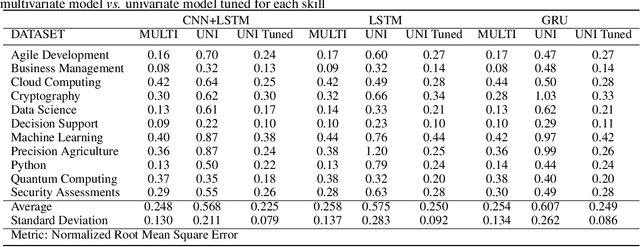
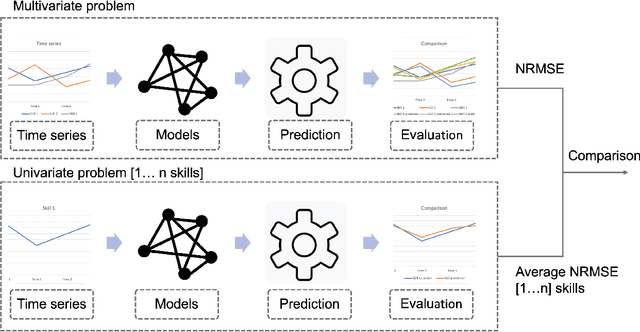
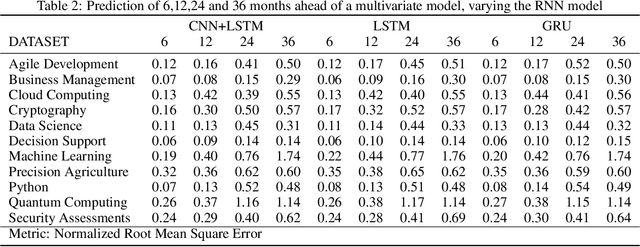
Abstract:Rapid technological innovation threatens to leave much of the global workforce behind. Today's economy juxtaposes white-hot demand for skilled labor against stagnant employment prospects for workers unprepared to participate in a digital economy. It is a moment of peril and opportunity for every country, with outcomes measured in long-term capital allocation and the life satisfaction of billions of workers. To meet the moment, governments and markets must find ways to quicken the rate at which the supply of skills reacts to changes in demand. More fully and quickly understanding labor market intelligence is one route. In this work, we explore the utility of time series forecasts to enhance the value of skill demand data gathered from online job advertisements. This paper presents a pipeline which makes one-shot multi-step forecasts into the future using a decade of monthly skill demand observations based on a set of recurrent neural network methods. We compare the performance of a multivariate model versus a univariate one, analyze how correlation between skills can influence multivariate model results, and present predictions of demand for a selection of skills practiced by workers in the information technology industry.
T-RECS: A Simulation Tool to Study the Societal Impact of Recommender Systems
Jul 28, 2021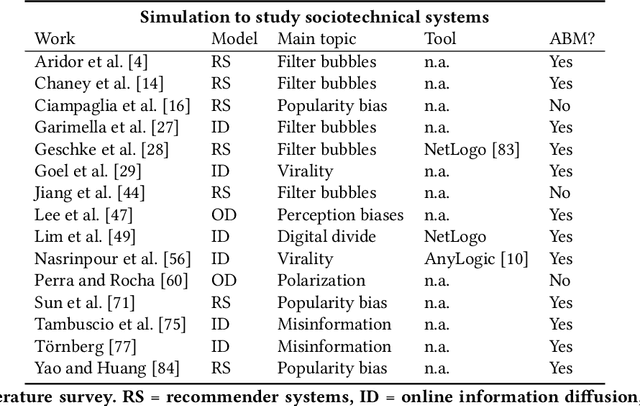
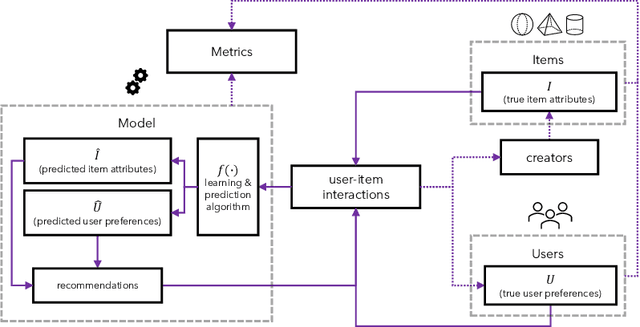
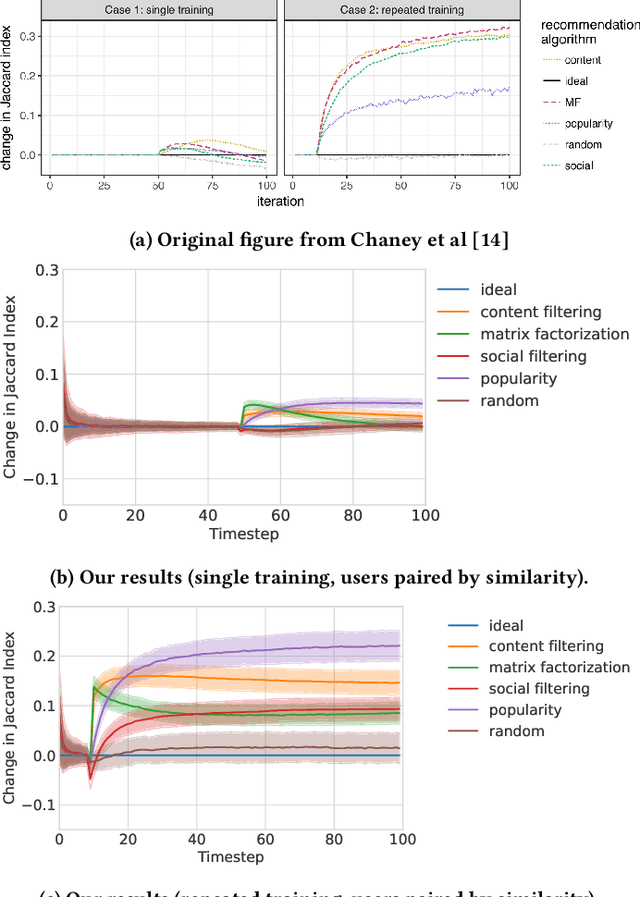
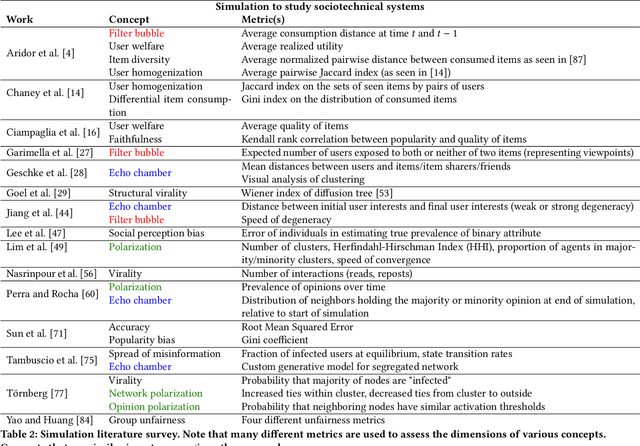
Abstract:Simulation has emerged as a popular method to study the long-term societal consequences of recommender systems. This approach allows researchers to specify their theoretical model explicitly and observe the evolution of system-level outcomes over time. However, performing simulation-based studies often requires researchers to build their own simulation environments from the ground up, which creates a high barrier to entry, introduces room for implementation error, and makes it difficult to disentangle whether observed outcomes are due to the model or the implementation. We introduce T-RECS, an open-sourced Python package designed for researchers to simulate recommendation systems and other types of sociotechnical systems in which an algorithm mediates the interactions between multiple stakeholders, such as users and content creators. To demonstrate the flexibility of T-RECS, we perform a replication of two prior simulation-based research on sociotechnical systems. We additionally show how T-RECS can be used to generate novel insights with minimal overhead. Our tool promotes reproducibility in this area of research, provides a unified language for simulating sociotechnical systems, and removes the friction of implementing simulations from scratch.
 Add to Chrome
Add to Chrome Add to Firefox
Add to Firefox Add to Edge
Add to Edge